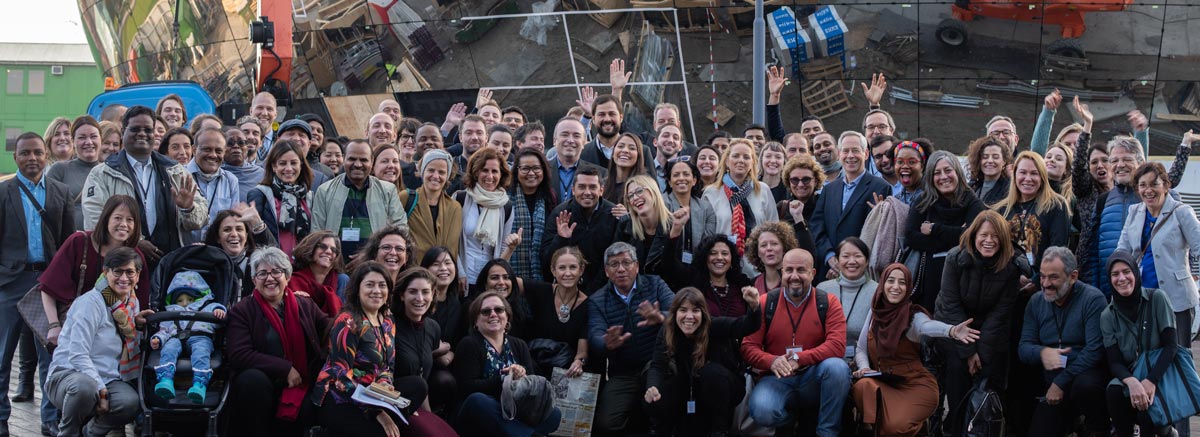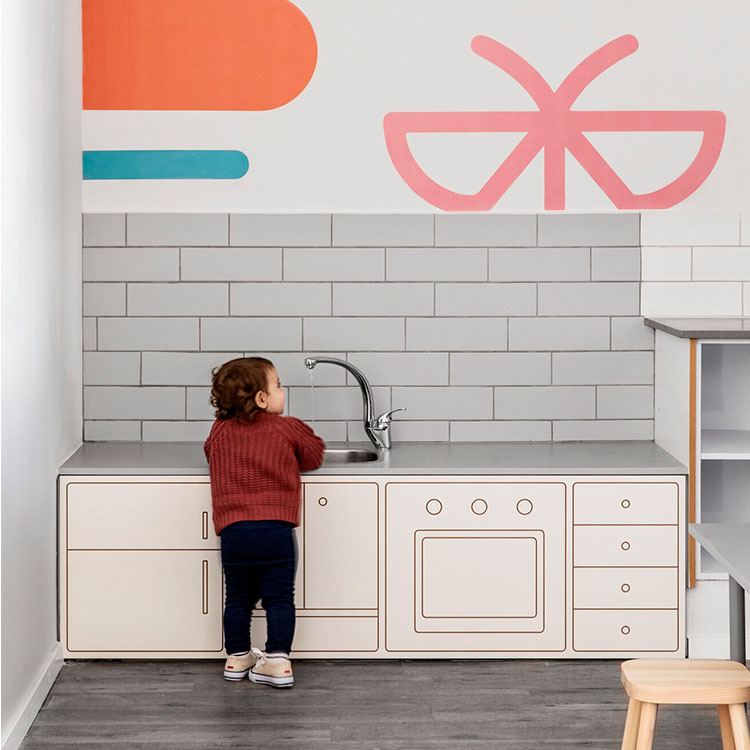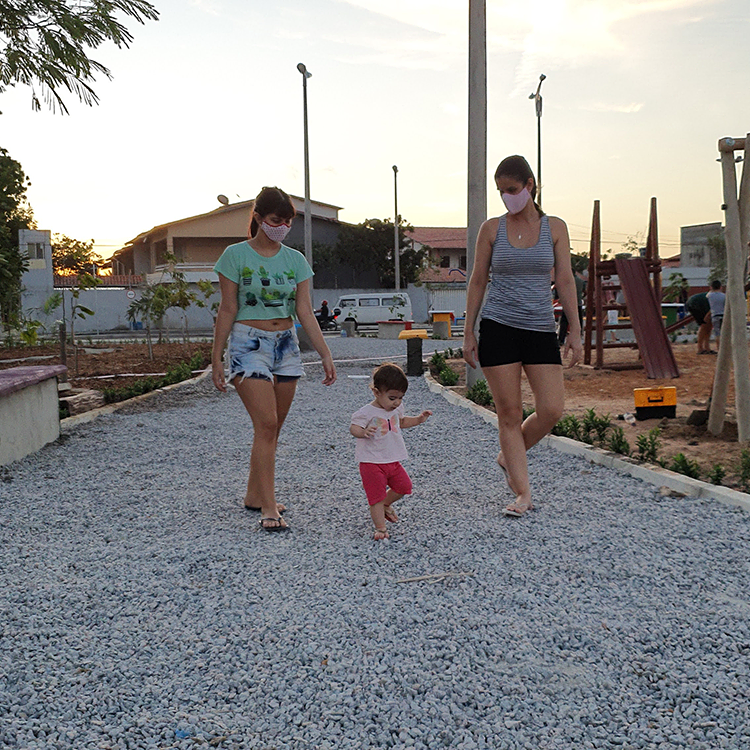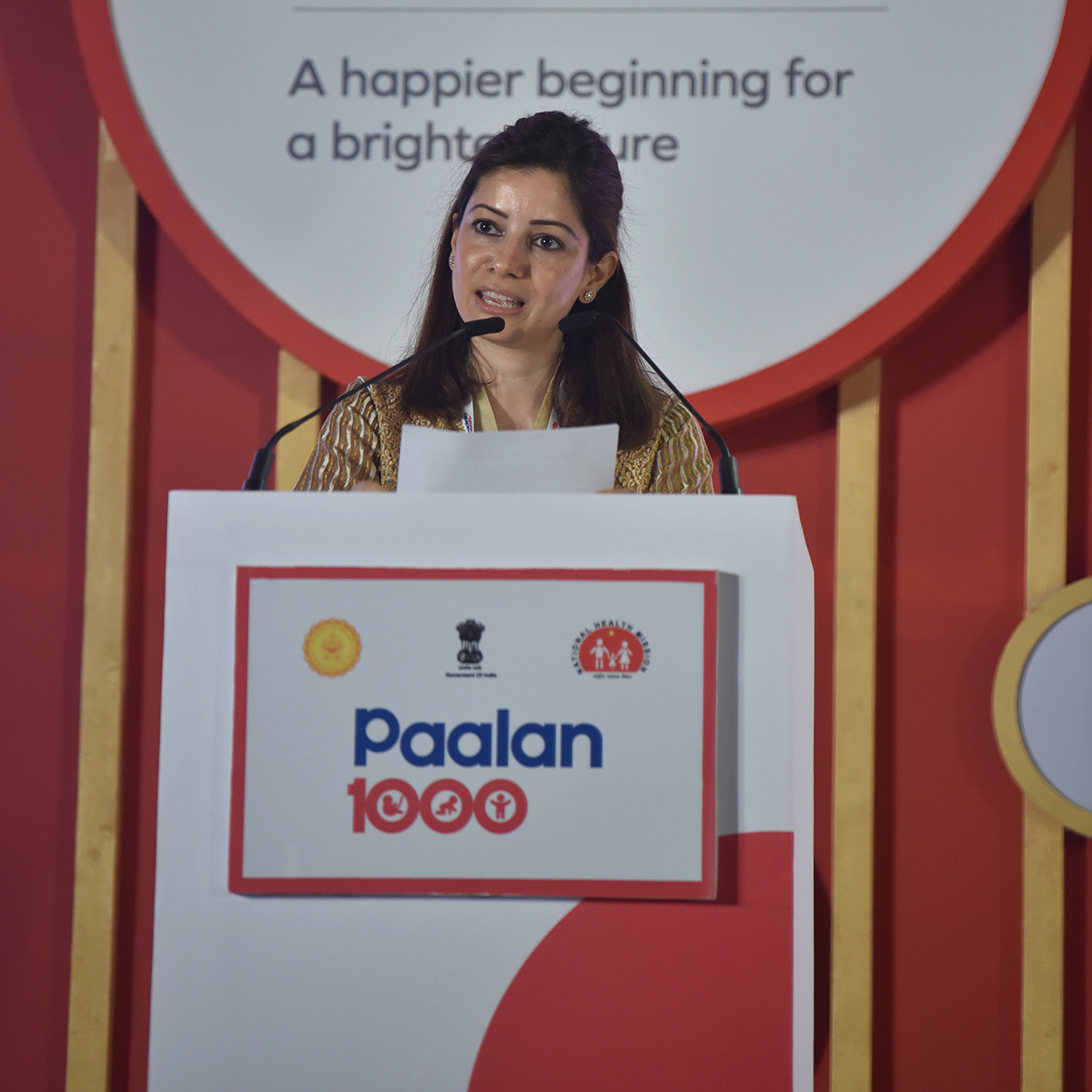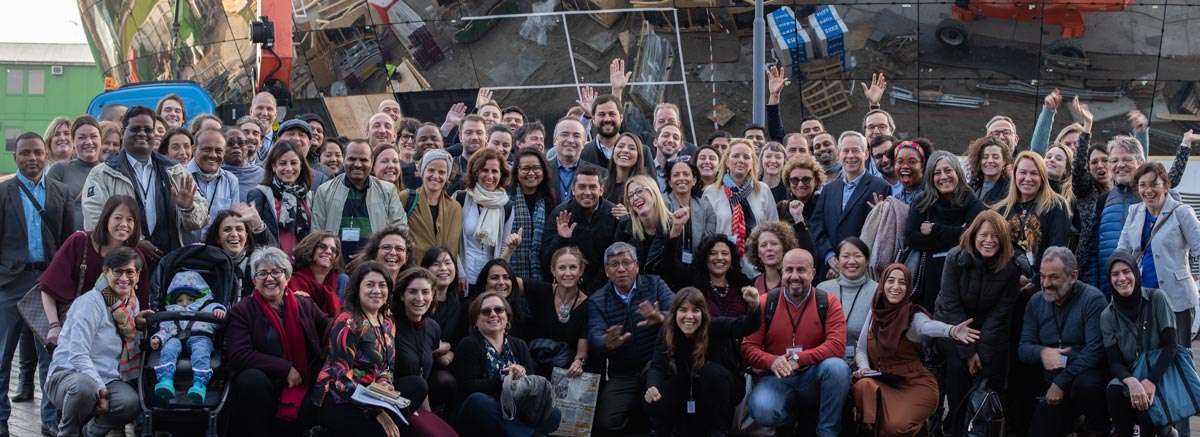
On December 2, 2019, over seventy city leaders, planners, designers and thinkers from around the world committed to making cities better for babies, toddlers and caregivers, gathered in Rotterdam for the first ever Urban95 Festival. Over three days, we:
- Celebrated how different cities are having a positive influence babies and childrens’ development
- Skilled ourselves up on an assortment of topics with workshops by various experts
- Strengthened and expanded our Urban95 network, so that we can help each other reach our goals
Here are five key takeaways from our three days together.
1. Demand for baby and toddler friendly cities must come from the community
We need to invite parents and other members of the community to be a part of Urban95 movement. Demand for cities amongst voters will ensure sustainability of the Urban95 mandate over time. When a community consistently demands something, it enables municipalities to make it a standing agenda: ‘’Our early childhood work will never go away no matter who the mayor is, because the parents are now demanding it, and we’ve built it into city governance via a unit focused on 0–6 years,’’ explained Ronit Ferber, from the Municipality of Tel Aviv.
2. We need to make the Urban95 network more diverse
To date, the Urban95 network includes primarily city leaders, implementing staff and technical organisations.” A cross-sectoral approach is essential for transforming cities. Van Leer Group chair member Nanno Kleiter noted that the private sector was notably missing: ‘’We need to find a way (for them) to build Urban95 into their business cases,’’ he urged. Behavioural Science Consultant Sam Sternin noted the untapped potential of important groups such as taxi driver bodies, or slum dwellers’ associations, who hold key influence, whilst others pointed out the innovation we could glean from the tech sector. People in the Financing and Costing Alignment Working Group Session highlighted the need to look beyond the usual suspects when it comes to funding sources, such as startups or Ministries of Finance. Thinking strategically, we also need to expand our geographical focus: ‘’In 2020–2030, the biggest urban growth will be in Africa and Asia. We need to be speaking more with these regions!’’ stated Sam Sternin.
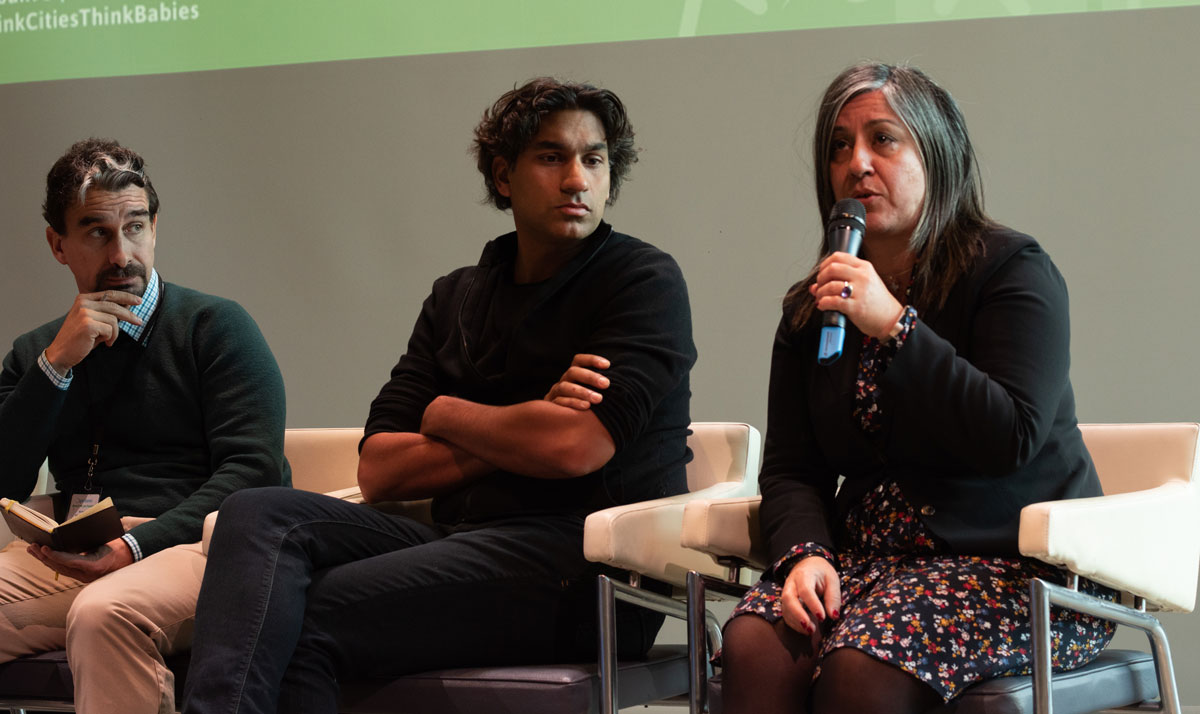
Left to right: Sam Sternin, Armand Padekooper Overman and Maria Vassilakou identifying gaps and potential in the work of Urban95.
3. Do we need to rethink the moral pitch?
There were naturally a lot of discussions about how to make Urban95’s focus on children and caregiver wellbeing a sticking point on the policy agenda of city municipalities worldwide. Teresa Surita, Mayor of Boa Vista, Brazil, has found that talking about the children’s needs encourages an integrated approach to developing policies across different departments. Others suggested that with certain audiences, instead of appealing to their sense of moral obligation, we should be talking business. ‘’Have a clear value proposition and show the return on investment,’’ suggested Sharon Roerty from the Robert Wood Johnson Foundation. ‘’Tell them ‘this is what’s in it for you…this is what you get out of it,” said founder of Imagination Afrika, Karima Grant. What worked for the former mayor of Vienna, Maria Vassilakou? Talking about the city in terms of liveability.
4. We shouldn’t be afraid of ‘failing’…if anything, we should try to fail earlier
Pilot interventions should be seen as exactly that – experiments to test something. ‘’We have experiments which didn’t work out, and that’s OK – that’s learning!’’ offered Bosmat Sfadia-Wolf, who leads the Urban95 programme at the Tel Aviv – Yafo municipality. ‘’We fall in love with our expectations of a project, and this becomes a potential barrier to learning,’’ noted a participant during the Monitoring Implementation and Learning About Impact breakout session. People in the Public Spaces workshops spoke about the importance of redesigning public spaces incrementally, and only after analysing how caregivers and young children interact with the space. For Jorge Vieira, Secretary of Planning and Management for Recife, Brazil, starting small was also great way to test the waters and get community feedback and buy-in, and show quick, visible results to potentially scale further, when the city started to transform waste-dump areas into public spaces for relaxation and play.
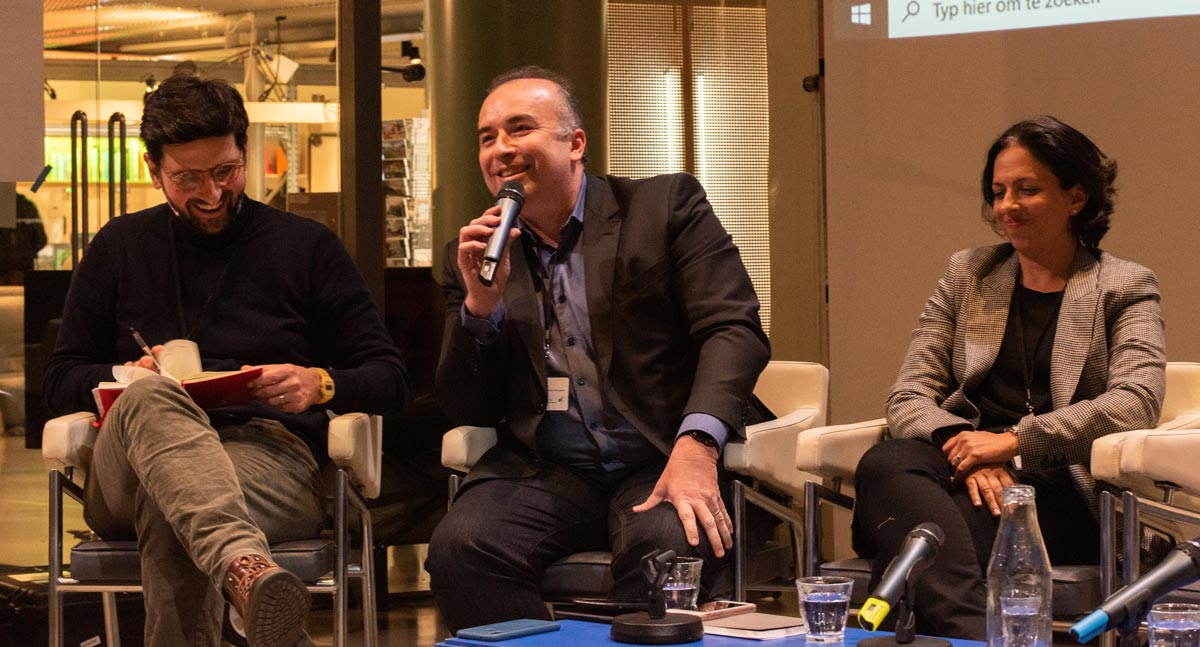
Left to right: Savvas Verdis, Jorge Viera and Bosmat Sfadia Wolf on the ‘How do we scale Urban95?’ panel.
5. There is no single right path to scaling Urban95
It was clear from the many examples and case studies shared that there are multiple ways and strategies for scaling Urban95. What worked for Tel Aviv, according to Bosmat Sfadia Wolf, was being ready for smart opportunities, (so that) whenever we could add value, we were there.’’ With Vienna, strong leadership prevented loss of focus, said Maria Vassilakou, former Deputy Mayor. For the city of Recife, Brazil, fortnightly data reports and dashboards were used to keep staff accountable and ensure that things got done, shared the Municipality’s Jorge Viera. In India, a top-down approach is underway; Urban95 guidelines have been developed at a federal level and are now being translated into something more concrete at a local level in cities such as Bhubaneswar and Pune. For Cecilia Vaca Jones, the Bernard van Leer Foundation’s Director, strong leaders and political will to promote are key, but so is the orchestrated effort of partners, ‘’because you’re not going to be do it all alone; change depends on how many people you can bring along with you.’’ Whilst there is no one-size-fits-all approach to scaling Urban95 in a city or country, there are common themes and conditions; assessing what is need to strengthen these conditions is paramount, which is why networking and learning from each other is so important.
Other insights worth mentioning
• When it comes to refugee settlements, we need to recognise that so-called temporary, informal refugee camps actually last for decades. Understanding the needs and cultures of the settlements’ inhabitant is key, as is listening to the needs and questions of the hosting community. According to Jonathan Robinson, Director of Civic, ‘’the old model of how we do refugee camps, where residents are seen as beneficiaries is being eaten away and replaced with a new model: where they are recognised as active citizens that partner with institutions to reimagine their camps as liveable cities.’’
• Data collection is important because it drives decisions. Technology can help with observation and data collection; it can make invisible issues, such as air quality, visible. Using the data you have to demonstrate as much as you can, whilst stating its limitations, can raise awareness about the need for more sophisticated monitoring.
Had a lot of fun with @BvLFoundation @patrin and delegates of the #Urban95Festival – showing how simple it can be to get live data about what's in the air we're breathing and the countless opportunities this brings https://t.co/PCacD3HjMv
— Matt Whitney (@mattwhitney10) December 5, 2019
• It’s important for children to experience a healthy amount of risk when playing – this helps them to develop their ability and independence.
• Infrastructure alone isn’t enough to achieve impact in the lives of children and caregivers – we need to measure and analyse their behaviours, and design or modify infrastructure accordingly, and incrementally.
• ‘There is such a thing as a ‘bicycle mayor‘ in more than 90 cities worldwide.
.@KatelinjeBoerma talks about her awesome job as the bicycle mayor of Amsterdam at #urban95festival @urban95cm Maybe this is an idea for @cityofdavis! pic.twitter.com/MXeE1Weomi
— Helen Hadani (@HelenSHadani) December 4, 2019
• If you want to harness communications and campaigns for impact, keep the message as simple and as easy to remember as possible. Have one problem, one solution, one pledge, and repeat it constantly. Sell ideas by entertaining people first!
• Playful structures and installations in urban environments can play in a role in prompting caregiver-child interactions that have a positive effect on the child’s social and cognitive developments.
• We looked at air quality, and what cites such as Pune, India are doing to improve it. Pune Environment Officer, Mangesh Dighe shared various elements of the city’s action plan, such as switching to electric buses, expanding the public bicycle sharing system, making streets bicycle and pedestrian friendlier, and enforcing better practices around construction and demolition waste. We need to take a systems approach to tackling air quality and climate change, to ensure that we’re not creating policies that counter one another.
• Empathy exercises, such as walking around the city with prams and rice bags to simulate toddlers, can be powerful advocacy tools for showing city counsellors the mobility struggles that civilians experience every day.
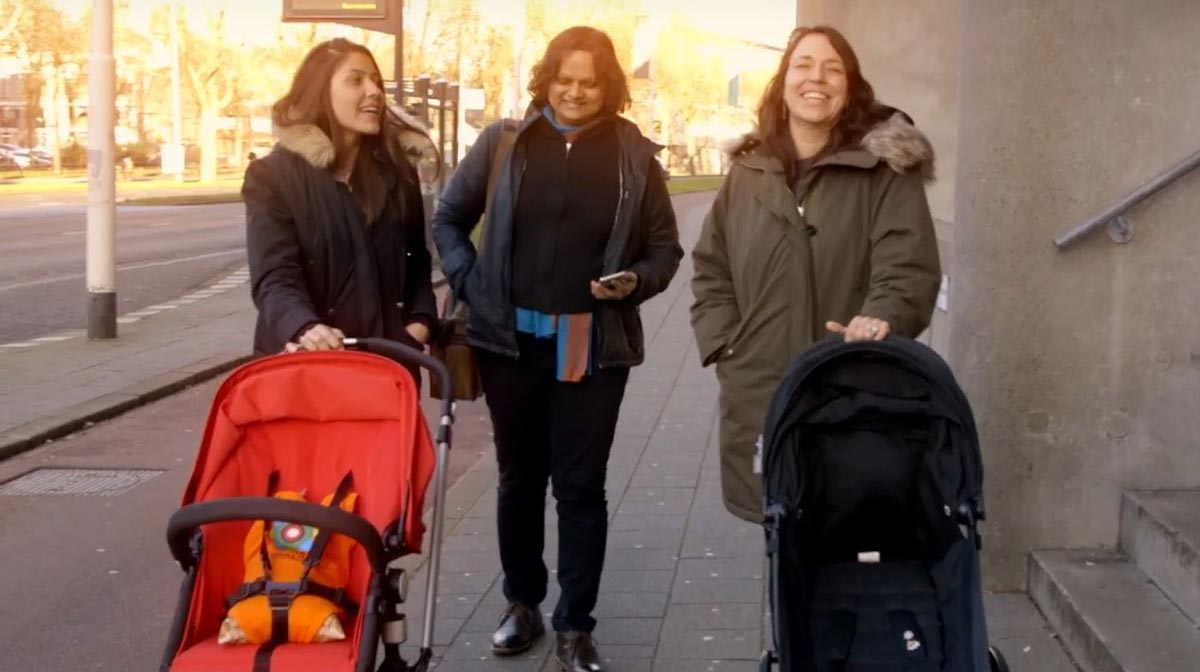
Empathy tools: Using 10kg bags of rice to simulate pushing a young toddler in a stroller around the city.
For more insights from the Urban95 Festival search for the hashtag #Urban95Festival or #Urban95Chat on Twitter; to delve deeper into specific topics, check out the Powerpoint presentations from the Breakout Sessions.
